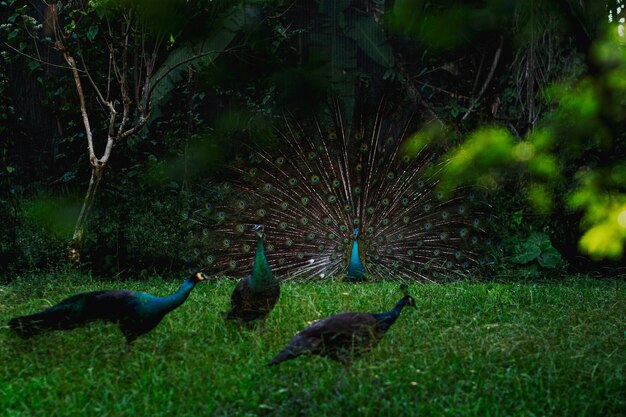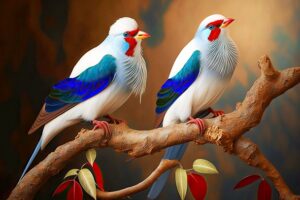Table of Contents
ToggleIntroduction
Peacocks, with their stunning and vibrant plumage, are often associated with beauty and grace. These birds have captivated human hearts for centuries, but have you ever wondered if there’s more to them than meets the eye? In this article, we will explore whether peacocks can be dangerous and uncover some surprising facts about these magnificent creatures.
The Graceful Peacock
Peacocks are known for their striking appearances, making them a symbol of elegance and aesthetic beauty. Their resplendent feathers, often used in decorative arts and fashion, have earned them a place of honor in many cultures.
The Myth of Aggression
One of the prevailing myths about peacocks is their reputation for aggression. While it is true that peacocks can sometimes display territorial behavior, it’s essential to understand that this behavior is relatively rare and often misunderstood.
The Territorial Display
Peacocks may spread their feathers and emit loud calls when they feel their territory is invaded. This display is meant to intimidate potential threats and protect their environment, but it’s not necessarily a sign of aggression towards humans.
Peacock vs. Peahen
Interestingly, it’s the male peacock that often displays territorial behavior. Female peahens are generally less territorial and tend to be more docile.
Interactions with Humans
When it comes to interactions with humans, peacocks usually keep to themselves. They are not known to be aggressive towards people, and many find them quite friendly. Peacocks are often seen in public places, such as parks and gardens, where they coexist peacefully with visitors.
Feeding Peacocks
One way to interact with peacocks is through feeding them. These birds are omnivores, and they enjoy a diet of grains, insects, and small reptiles. Offering them birdseed or grains can be an excellent way to observe them up close.
Photographing Peacocks
Many people are drawn to peacocks for their stunning appearance, making them a popular subject for photographers. When approached with care and respect, peacocks can provide some breathtaking photo opportunities.
Rare Instances of Aggression
While most peacocks are not dangerous, there have been a few isolated aggression cases. These incidents are usually the result of specific circumstances, such as a peacock feeling cornered or threatened. It’s crucial to approach these birds with respect and maintain a safe distance.
Conclusion
In conclusion, peacocks are generally not dangerous to humans. Their reputation for aggression is primarily a misconception, and they are more likely to coexist peacefully in the same space as people. However, it’s essential to remember that, like any wild animal, they should be treated with respect and observed from a safe distance.
FAQs
- Can peacocks fly?
Yes, peacocks can fly, but their flight is limited to short distances.
- Do peacocks make good pets?
Peacocks are not recommended as pets due to their territorial behavior and specific dietary needs.
- Are peacock feathers legal to possess?
In some regions, it is legal to own peacock feathers, but regulations vary, so it’s essential to check local laws.
- Why do peacocks spread their feathers?
Peacocks spread their feathers as part of a mating display to attract peahens.
- Are there any endangered species of peacocks?
Yes, the Green Peafowl is an endangered species of peacock found in Southeast Asia and parts of Indonesia.





